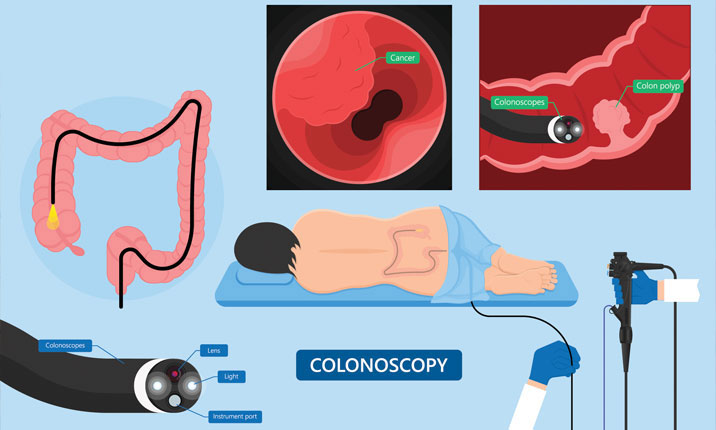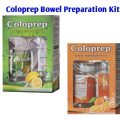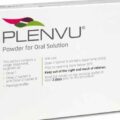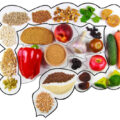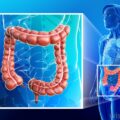A colonoscopy is a medical examination used to detect changes or abnormalities in the large intestine (colon) and rectum. During a colonoscopy, a long, flexible tube (colonoscope) is inserted into the rectum. A tiny video camera at the tip of the tube allows the doctor to view the inside of the entire colon.
The colon helps form the lowest portion of the gastrointestinal tract. It takes in food, absorbs nutrients, and disposes of waste. The colon is attached to the anus via the rectum. The anus is the opening in your body where feces are expelled. During a colonoscopy, your doctor may also take tissue samples for biopsy or remove abnormal tissue such as polyps.
Colonoscopy can spot small colon cancers while they are treatable and before they have spread to other parts of the body. It can also detect and remove polyps, and small growths that can develop into colon cancer. Colon and rectal cancers (known together as colorectal cancers) are the third most common type of cancer in men and in women and the second leading cause of cancer-related deaths in the United States. ALSO READ: How Long Does Colon Cancer Take To Develop?
What’s involved in colonoscopy prep?
According to Harvard Health, emptying the contents of the colon is a key requirement for a successful colonoscopy. If the bowel prep isn’t up to par, polyps and lesions can be missed; the colonoscopy may take longer (increasing the risk of complications); or the whole process may need to be repeated or rescheduled, meaning another round of bowel prep.
Different medical centers recommend different ways to prepare the bowel for a colonoscopy. There are two parts: diet and drinking bowel-cleaning liquids. Here are some of the main strategies.
Colonoscopy prep diet
A few days before the colonoscopy procedure — Start eating a low-fiber diet: no whole grains, nuts, seeds, dried fruit, or raw fruits or vegetables. The day before the colonoscopy procedure — Don’t eat solid foods. Instead, consume only clear liquids like clear broth or bouillon, black coffee or tea, clear juice (apple, white grape), clear soft drinks or sports drinks, Jell-O, popsicles, etc.
The day of the colonoscopy procedure — As on the previous day, clear liquid foods only. Don’t eat or drink anything two hours before the procedure.
Bowel prep for colonoscopy
In the afternoon or evening before the colonoscopy, drink a liquid that will trigger bowel-clearing diarrhea. The exact colonoscopy prep instructions depend on the bowel prep your doctor prefers, the time of your colonoscopy, and any prior experience you’ve had with colon preps (if one didn’t work before, you’ll likely be prescribed a different one).
You can read about some common bowel preparations approved by the American Gastroenterological Association, American College of Gastroenterology, and American Society for Gastrointestinal Endoscopy. Contact your clinician to discuss the one that is best for you.
Colonoscopy Preparation Tips
Preparing for a colonoscopy may be uncomfortable and time-consuming, but it needn’t be an ordeal. Here are some things you can do to help it go as smoothly and comfortably as possible:
Make sure you receive your colonoscopy prep instructions well before your procedure date and read them completely as soon as you get them. This is the time to call your clinician with any questions and to buy the bowel prep she or he has prescribed. Pick up some medicated wipes (for example, Tucks or adult wet wipes with aloe and vitamin E) and a skin-soothing product such as Vaseline or Desitin — you’re going to be experiencing high-volume, high-velocity diarrhea.
Arrange for the time and privacy you need to complete the prep with as little stress as possible. Clear your schedule, and be at home on time to start your prep. If you have children or aging parents who need attention, have someone else be available to them while you’re indisposed.
Water can get boring, so keep a variety of clear liquids on hand. On the day before your colonoscopy — when you’re restricted to clear liquids — you can have popsicles, Jell-O, clear broth, coffee or tea (without milk or creamer), soft drinks, Italian ice, or Gatorade. But take nothing with red, blue, or purple dye. Drink extra liquids before, during, and after your bowel prep (usually until a few hours before your procedure), as well as after your colonoscopy.
To make a bad-tasting liquid prep like magnesium citrate easier to swallow, try one or more of the following if it doesn’t come flavored: Add some Crystal Light or Kool-Aid powder (again, not red, blue, or purple); add some ginger or lime; drink it chilled; drink it through a straw placed far back on your tongue; hold your nose and drink it as quickly as possible; quickly suck on a lemon slice after you finish each glass; hold a lemon or lime under your nose while you drink; suck on a hard candy after each glass. READ: What Does Magnesium Citrate Taste Like
Wear loose clothing and stay near the bathroom. Better yet, once the preparation starts to work, stay in the bathroom — because when the urge hits, it’s hard to hold back. Consider setting up shop near the toilet with music, your laptop, magazines, or books.
What to Do If You Accidentally Drank Milk Before Colonoscopy
The normal procedure and preparation require that you avoid alcohol and drinks you can’t see through, like milk or orange juice. Two to four hours before the procedure, be sure not to drink or eat anything.
However, if you accidentally drank milk before the colonoscopy procedure that might not be much of a problem according to new research. A small randomized study reported in a poster at the American College of Gastroenterology 2011 Annual Scientific Meeting found that a full liquid diet including milk, yogurt, pudding, fruit, and veggie juices — even ice cream — was just as good as a more restricted clear liquid diet in finding polyps.
Doctors doing the exams didn’t know which patients had clear liquids only and who got to eat a full liquid diet but rated them equally effective in satisfactorily cleansing the colon
In addition, the number of patients where polyps were found wasn’t different in the two diets. One patient on a clear diet wasn’t able to finish the prep — which also included 2 liters of MoviPrep.
Researchers, led by Ellen Gutkin, DO at New York Hospital Queens, randomized 34 patients preparing for a colonoscopy the next day to either a traditional clear liquid diet or a full liquid diet that included milk, milkshakes, creamed soup, pudding, cream, fruit and vegetable juices, yogurt, and ice cream. Strangely, even with more food choices, there was no difference in patient satisfaction.
The team concluded, that their study demonstrates that a full liquid diet does not worsen bowel preparation, decrease the ability to detect polyps, or increase total colonoscopy time, when compared with a clear liquid diet. The patient’s overall satisfaction scores were similar for full and clear liquid diets.
What This Means for Patients
Does this mean you can chow down before your next colonoscopy — or even have some creamed asparagus soup or ice cream? Probably not. The study was small and needs to be repeated in larger, randomized groups of patients preparing for a colonoscopy.
However, if results hold up, this could provide an easier experience getting ready for that test, particularly for patients with diabetes or other illnesses that make very restricted diets hard. Until we have more information, follow the instructions from your doctor to be sure your colon is shiny clean! ALSO READ: What Are The Top Health Problems and Issues Men Face?
Are there other methods to examine my colon besides colonoscopy?
Yes, there are alternative methods to examine the colon, but none are considered more accurate at colon cancer and polyp detection than colonoscopy. They include:
- Flexible sigmoidoscopy and a barium enema (an x-ray examination of the colon after it has been distended by barium, a contrast agent, following preparation with a Fleet® Enema or Fleet® Phospho-soda).
- Computerized tomography (CT), a test that takes pictures of the inside of the colon, can also be done. This is called CT colonography or “virtual colonoscopy”. Like conventional colonoscopy, this test requires a full preparation the day before the exam (liquids and possibly enemas). This test, however, involves radiation exposure which may increase your long-term risk of the development of cancer.
If any of the above tests suggest the presence of polyps or cancer, a conventional colonoscopy (and a second preparation) will be required.
Fecal Occult Blood Testing (FOBT), is a test whereby stool is examined for minute amounts of blood loss (possibly from polyps or cancer) by way of a chemical reaction resulting in a color change. While FOBT is not a test to examine the colon, it is recommended annually for individuals over age 50. If occult blood is found in the stool, a follow-up colonoscopy will be necessary.
For colon cancer screening, it should be noted that colonoscopy has the highest sensitivity and is the only test that is both diagnostic and therapeutic.

